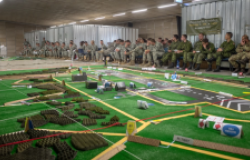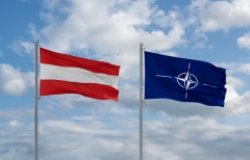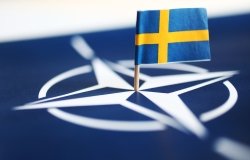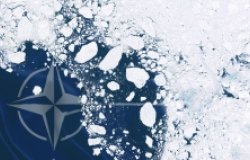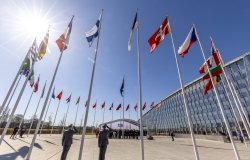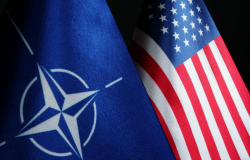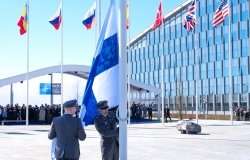Something New, Something Old – Finland on the Verge of a New Russia Relationship
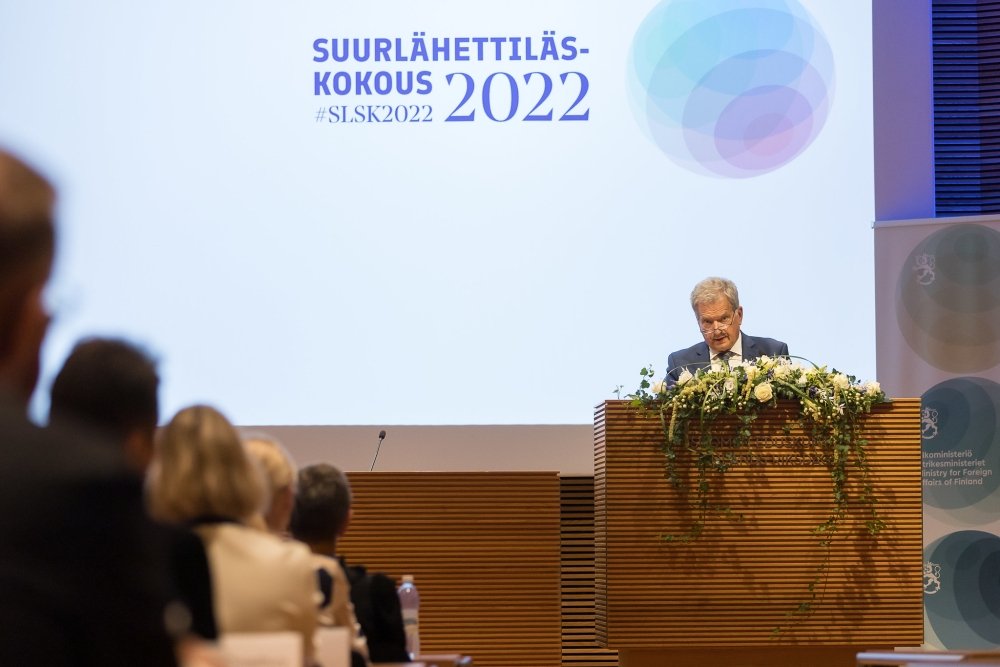
Flickr/Office of the President of the Republic of Finland
In late August Finland's foreign policy leadership gathered in Helsinki for the Annual Heads of Mission meeting to discuss current security and foreign affairs. The annual event was particularly interesting this time, as it was the first of its kind since the start of Russia’s invasion of Ukraine and Finland’s decision to apply for NATO membership.
Naturally, Russia was at the heart of the discussions. The speeches by Finland’s leadership reflected on how Russia's war and aggression had increased the threat to Finland's security, and with it, drove Finland to seek security under NATO’s umbrella.
Contrary to the idea that Helsinki was afraid of Russian military action against Finland, the decision to apply for NATO membership in May was based above all on proactive risk management. The always present potential of Russia’s threat had to be viewed from a different perspective after February. Finland’s previous restraints – national defense, the international rules-based order and close defense cooperation with NATO – were deemed insufficient under the circumstances.
Hence, the conclusion was that only NATO's article five and its nuclear deterrence could provide Finland with sufficient security. Outside of NATO’s umbrella, the threat facing Finland would not necessarily have been a direct and all-out military confrontation with Russia, but rather a significant weakening of Finland’s geopolitical position. For example, it is possible to imagine a limited Russian military or hybrid threat scenario against Finland in order to absorb Helsinki into Moscow’s orbit. In such a scenario where Finland would not be a member of NATO, Russia could have demanded Finland’s capitulation, using the threat of nuclear or military options. Without NATO’s article five, there would have been no guarantees of assistance, leaving Finland vulnerable.
In the future, Finland’s NATO membership will prevent scenarios like the one mentioned above. Fundamentally, the decision to seek NATO membership was about Finland’s need to manage its relationship with Russia and is linked to Helsinki’s long tradition of how it should live with its eastern neighbor and the threat it could potentially pose.
Throughout its independence since 1917, Finland has sought a tolerable and manageable security balance with Russia. In the past, such solutions have been, for example, seeking to form a border state alliance between Finland, Poland and the Baltic countries in the 1930s, relying on German military assistance in the Continuation War in the 1940s, leaning on a policy of neutrality during the Cold War, or deepening defense cooperation with NATO since 2014. Applying for NATO membership in the spring of 2022 falls in line with this tradition.
The inevitable conclusion is that Russia is a recurring threat to Finland and the latter’s security policy has revolved around this question for almost a hundred years. Finland’s former Ambassador to Russia, Mr. René Nyberg, has described Russia as ‘the insoluble dilemma’ of Finland's foreign policy. Certainly, this is true to the extent that Finland has and continues to have only a limited influence over Russia's choices and broader world view. Unfortunately, even NATO membership does not offer Finland security vis-à-vis Russia. Especially when the current Kremlin is ready to wage an open war of aggression against its neighboring countries and is willing to cut ties with the West.
Thus, it seems that Finland will face its traditional dilemmas and problems mostly in a new context and as part of an alliance. Inevitably, the changes will be reflected in its Russia relations. Russia’s invasion of Ukraine has led to a self-reflection in European societies and the atrocities of Russia’s soldiers has opened old scars in Finnish society, as well as Finland's historical memory of its war against the Soviet Union.
People in Finland's emotions have included a combination of fear, anger and, above all, disappointment towards Russia. Finns have not shied away from harsh self-criticism either. Finland’s Russia policy since the end of the Cold War has been labeled by many as naive, where risks and unpleasant facts were completely ignored. Just four days after the start of the war, Finland’s largest daily Helsingin Sanomat declared that Finland has no special understanding of Russia, due to the inability by the political leadership to anticipate the war. A similar echo of self-criticism was noticeable in Prime Minister Sanna Marin’s speech at the Heads of Mission meeting, where she stated how perhaps Finland should have listened more closely to the Baltic countries regarding Russia.
The reflection has not only been limited to the assessment of the state's official policy on Russia but has spread to other levels of society as well. Researchers and academics are coming forward with allegations that research on Russia has been curbed, either directly or indirectly, so that researchers have had to sensor themselves on the negative trends and features of Russia.
It goes without saying that self-reflection regarding Russia is needed. The same is now being done in other western capitals as well. As far as Finland is concerned, criticism can be given for the fact that Finland did not let go of its Russia optimism earlier. A primary example of this is energy related endeavors with Russia, such as the planned nuclear power plant on Finland's west coast – a project in cooperation with Rosatom but canceled since Russia invaded Ukraine.
As the veteran Finnish Cold War diplomat Max Jakobson once wrote, neither an active nor passive foreign policy can be absolute values, since Finland’s ability to promote issues on the global arena depends on the boundaries created by the prevailing international trends. This is a harsh and perhaps a realist school of thought reminder especially for smaller states. Although the effort by Helsinki to actively build predictability and interdependencies between Russia and the West has been noble, in the end the time turned out to not be right.
Yet, perceiving Finland’s approach and policy as a failure just because Helsinki was not able to prevent or foresee seems simplistic. The fallout between Russia and the West does not wipe away Finland’s decade’s long experience dealing with Russians. Finland has had an exceptionally frequent and penetrating access to the highest echelons of Russian power. A prime example of this is how between 2012 and 2022, the President of Finland, Mr. Sauli Niinistö has either met or held a telephone meeting with his counterpart Vladimir Putin over 40 times. The last phone call between them took place in May, where the two discussed Finland’s NATO application.
Finland’s frequent interactions with Russia in the past has often led to Helsinki being characterized as a ‘bear whisperer’. However, access and close experience should not necessarily be mixed with having influence over Moscow – nor is it something Finland particularly ever claimed to have possessed. Having channels to Moscow has rather been about strengthening Finland’s international position and having an ear on matters that have an impact on its immediate national security as well as keeping an eye on its neighbor.
Importantly, various government-level contacts and the experience gained from them have made Finland an interesting partner in the West. In recent years this has been visible through several high-level meetings between Russia and the United States which have been facilitated by Helsinki. Importantly, Finland has been able to utilize its networks and connections in Russia without the taint of corruption. If this was not the case, Finland would not be the kind of country to which, for example, the United States would have sold its state-of-the-art military capabilities for the past 25 years.
It also says a lot about Finland's relationship with Russia that, unlike the rest of Europe, it never waived conscription or reduced its defense forces to become a non-existent actor. If not publicly then at least in private, Finland has always been prepared for the Russian threat. When European security deteriorated after 2014, Finland’s threat perception did not waver.
As of February 24th, Finland's Russia policy is radically shifting and is tied to the war in Ukraine. However, regardless of the result in the battlefields, it is certain that these relations will not return to the way they were before. It is noticeable how the Finnish-Russian relationship is living through a historic breakdown as diplomatic engagement has been reduced to a minimum, economic relations have been severed, and cultural and civic interaction has dwindled.
As President Mr. Sauli Niinistö pointed out in his speech for the Finnish Ambassadors, there is not much left of Finland’s earlier relationship with Russia as trust is gone and there is nothing in sight on which to base a new beginning. Certain realities, however, will not change. In his other rather gritty remark, the President noted how we must not forget how Russia has been Finland’s neighbor both in bad days and in better days and will continue to be one even if there were no turn for the better.
Even though Finland will face a more threatening and unpredictable Russia as a neighbor and as a member of NATO, it seems unlikely that it would swap its considerate Russia approach to a defiant one. This does not mean Finland would no longer oppose Russia’s imperialism or stop supporting Ukraine by all possible means. Finland’s approach to Russia in the future stems from the stone-cold fact that it cannot escape the common 1,300 km (800 mile) border and military proximity with its neighbor.
While the relationship between Finland and Russia will continue to have its problems, those who have worked on them also know how to say that despite them, the interaction, especially before the war, has mainly been characterized by practicality and dialogue. Eventually, in the distant future, there will likely be a time when Russia and the West will have to sit down, and when that happens, there might be a demand for practicality.
Thus, Finland's future relationship with Russia will find its place in the middle ground between old and new doctrines. Finland’s national security will be linked to the common border and its stability, which create the need for some level of communication. The current war waging Kremlin, on the other hand, compels Finland to invest in military deterrence nationally and in NATO.
As such, the necessities brought about by geography and the effort to avoid escalation will be the core of Finland’s relationship with Russia. However, Finland’s previous close and active communication with Russia at its height of power should be left on the shelf for the time being, but these channels should be kept in the reserve for when and if their time comes.
However, as Finland's NATO decision is fundamentally about managing its relationship with Russia, it can be expected that Finland will be a reliable ally who supports a tough approach to Russian aggression – especially when this threat will loom over Europe for the foreseeable future. In Helsinki, there are no hopes for a quick change in relations nor a need to strive for special attempts at dialogue. As President Niinistö said in his recent speech, on the contrary, Finland needs to carefully reconsider any dependencies that could be used against it. This is not the right time to build connections but rather strengthen a common position in the West.
About the Author


Global Europe Program
The Global Europe Program is focused on Europe’s capabilities, and how it engages on critical global issues. We investigate European approaches to critical global issues. We examine Europe’s relations with Russia and Eurasia, China and the Indo-Pacific, the Middle East and Africa. Our initiatives include “Ukraine in Europe” – an examination of what it will take to make Ukraine’s European future a reality. But we also examine the role of NATO, the European Union and the OSCE, Europe’s energy security, transatlantic trade disputes, and challenges to democracy. The Global Europe Program’s staff, scholars-in-residence, and Global Fellows participate in seminars, policy study groups, and international conferences to provide analytical recommendations to policy makers and the media. Read more

Kennan Institute
The Kennan Institute is the premier US center for advanced research on Russia and Eurasia and the oldest and largest regional program at the Woodrow Wilson International Center for Scholars. The Kennan Institute is committed to improving American understanding of Russia, Ukraine, Central Asia, the Caucasus, and the surrounding region though research and exchange. Read more


